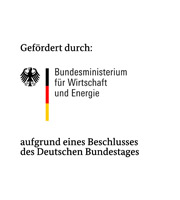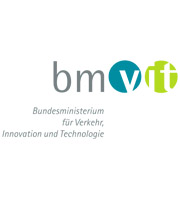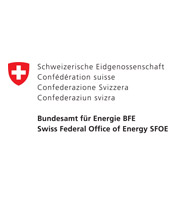Proceedings
for download (pdf, appr. 4,6 MB)
Tuesday, September 27
Thursday, September 29th
| Time | Title, Presenter |
|---|---|
| 8:30 | Registration, Get Together, Coffee |
| 9:00 | Welcome Friederich Kupzog, Wilfried Elmenreich, Ronald Bieber Conference Chairs |
| 9:15 | Keynote: Power Line Communications for the Smart Grid: Status and Future Andrea M. Tonello, Alpen-Adria Universität (Further Information) |
| Session 1: Simulation and Validation of Networked Smart Grid Systems Chaired by Sebastian Lehnhoff |
|
| 9:50 | Incremental Development of a Co-Simulation Setup for testing a Generation Unit Controller for Reactive Power Provision Jorge Velasquez, OFFIS |
| 10:10 | OpenGridMap: Towards Automatic Power Grid Simulation Model Generation from Crowdsourced Data Jose Rivera, Technische Universität München |
| 10:30 | Coffee |
| Session 2: Scheduling of Flexibility Chaired by Friederich Kupzog |
|
| 11:00 | Demand-Response Optimized Heatpump Control for Service Sector Buildings Edith Birrer, Lucerne University of Applied Sciences and Arts |
| 11:20 | Distributed demand side management using electric boilers Lorenzo Nespoli, SUPSI |
| 11:40 | Impacts of Domestic Electric Water Heater Parameters on Demand Response Tobias Lübkert, Hamburg University of Technology |
| 12:00 | Hybrid simulation and energy market based optimization of cement plants Peter Bazan, Friedrich-Alexander-Universität Erlangen-Nürnberg |
| 12:20 | PhD Workshop Flashlight talks |
| 12:30 | Lunch |
| Poster Session: Networking with ongoing research projects in DACH+ Region | |
| 14:00 | Poster Flashlight Talks |
| 14:20 | Interactive Poster Session |
| 15:30 | Coffee |
| Session 3: Advanced Technologies for Distribution Grids Chaired by Silvia Santini |
|
| 16:00 | GridBox Pilot Project Results Alain Brenzikofer, Supercomputing Systems |
| 16:20 | A Framework for Disturbance Analysis in Smart Grids by Fault Injection Igor Kaitovic, ALaRI, University of Lugano |
| 16:40 | Providing primary frequency control with residential-scale photovoltaic-battery systems Sandro Schopfer, ETH Zurich |
| 17:00 | Provisioning, Deployment, and Operation of Smart Grid Applications on Substation Level Stephan Cejka, AIT |
| 17:30 | End of Day 1 |
Friday, September 30th
| Time | Title, Presenter | ||
|---|---|---|---|
| 9:00 | Keynote: Predictive Energy Management for sustainable Cities with Watson IoT Marcus Kottinger, IBM (Further Information) |
||
| Session 4: Power Grid Automation & Protocols Chaired by Thorsten Staake |
|||
| 9:40 | Message-oriented Machine-to-Machine Communication in Smart Grids – An Approach for and Experiences from Mapping IEC 61850 and CIM to XMPP Richard Kuntschke, Siemens AG |
||
| 10:00 | Accurate Clock Synchronization for Power Systems Protection Devices over Packet Switched Networks Andreas Aichhorn, Sprecher Automation GmbH |
||
| 10:30 | Coffee | ||
| Session 5: Privacy Chaired by Günther Eibl |
Workshop: Tools & Methods in Smart Grid Research, Part I |
||
| 11:00 | Preserving Privacy in Distributed Energy Management Daniel Brettschneider, University of Applied Sciences Osnabrück |
||
| 11:20 | Differential Privacy for Real Smart Metering Data Günther Eibl, Salzburg University of Applied Sciences |
||
| Session 6: Electric Vehicles Chaired by Wilfried Elmenreich |
|||
| 11:40 | Coordinated Charge Management for Battery Electric Vehicles Arne Groß, Fraunhofer Institute for Solar Energy Systems |
||
| 12:00 | Ensembles of Context and Form for Repurposing Electric Vehicle Batteries – An Exploratory Study Markus Monhof, WWU Muenster – ERCIS |
||
| 12:30 | Lunch | ||
| Session 7: Forecasting and State Estimation Approaches Chaired by Hartmut Schmeck |
Workshop: Tools & Methods in Smart Grid Research, Part II |
||
| 14:00 | Analysis and Model-Based Predictions of Solar PV and Battery Adoption in Germany: An Agent-Based Approach Hermann de Meer, University of Passau |
||
| 14:20 | Photovoltaic power forecasting using simple data-driven models without weather data Jorge Ángel González Ordiano, Karlsruhe Institute of Technology |
||
| 14:40 | Evaluation of Network State Estimators for Adaptive Power-Balancing Controller in a Microgrid scenario Mislav Findrik, AIT |
||
| 15:00 | Targeting Customers for an Optimized Energy Procurement – A Cost Segmentation Based on Smart Meter Load Profiles Simon Albrecht, Hochschule Fresenius – University of Applied Sciences |
||
| 15:20 | Roundup | ||
| 15:30 | Start to Excursion | ||
| 16:00 | Visit to Carinthia’s largest Energy provider KELAG and guided tour through control centre of KNG Kärnten Netz GmbH | ||
| 17:30 | End of Day 2 | ||
Workshop: Tools & Methods in Smart Grid Research
Friday, September 30th, 11:00 – 15:30
Organizing committee
Prof. Dr. Sebastian Lehnhoff (OFFIS, Germany)
Dr.-Ing. Astrid Nieße (OFFIS, Germany)
Talks
Rapid Control Prototyping for Networked Smart Grid Systems
Dr. Mario Faschang, AIT, Austria
In this talk a seamless development process for Smart Grid control systems will be presented, which starts with the first line of code and ends with an operating controller in the field. In order to reduce the risk of a malfunctioning controller, high value is given to the evaluation of the control system through simulation of the controlled distribution grid, co-simulation of communication and distribution grid, and controller hardware-in-the-loop evaluation.
The Organic Smart Home – An Organic Computing Architecture for Energy Management and Smart Grids
Dipl.-Wi.-Ing. Ingo Mauser, KIT, Germany
The presentation demonstrates how concepts from Organic Computing may support the controlled self-organization of the future smart grid. We propose a generic hierarchical architecture–the extended Observer/Controller Architecture–as a framework for various energy management systems. This architecture reflects the physical grid structures as well as user goals and enables adaptive responses to changing objectives as well as disturbances in the system. We developed the Organic Smart Home based on the generic architecture as a prototypical building energy management system that supports the optimization of all relevant energy carriers in buildings. Various simulations and evaluations in the KIT Energy Smart Home Lab and the FZI House of Living Labs show the applicability of the proposed architecture to the domains of energy management in smart grids.
SGAE: Development of distributed Smart Grid algorithms using mosaik and MAS
Dr.-Ing Astrid Nieße, OFFIS, Germany
The development of (distributed) Smart Grid algorithms heavily relies on simulation of large scale scenarios of the controlled components. Although a large body of research emerged on distributed Smart Grid algorithms, a sound methodological engineering approach is often missing. With the iterative process model Smart Grid Algorithm Engineering (SGAE) a process model has been introduced to achieve both: sound research and application relevant results.
At OFFIS, we use mosaik to compose simulation models when developing and evaluating distributed algorithms for the control of DER in different use cases. In this talk, an overview on SGAE and mosaik is given using a practical example from ongoing work on the development of multi-agent based distributed DER control.







